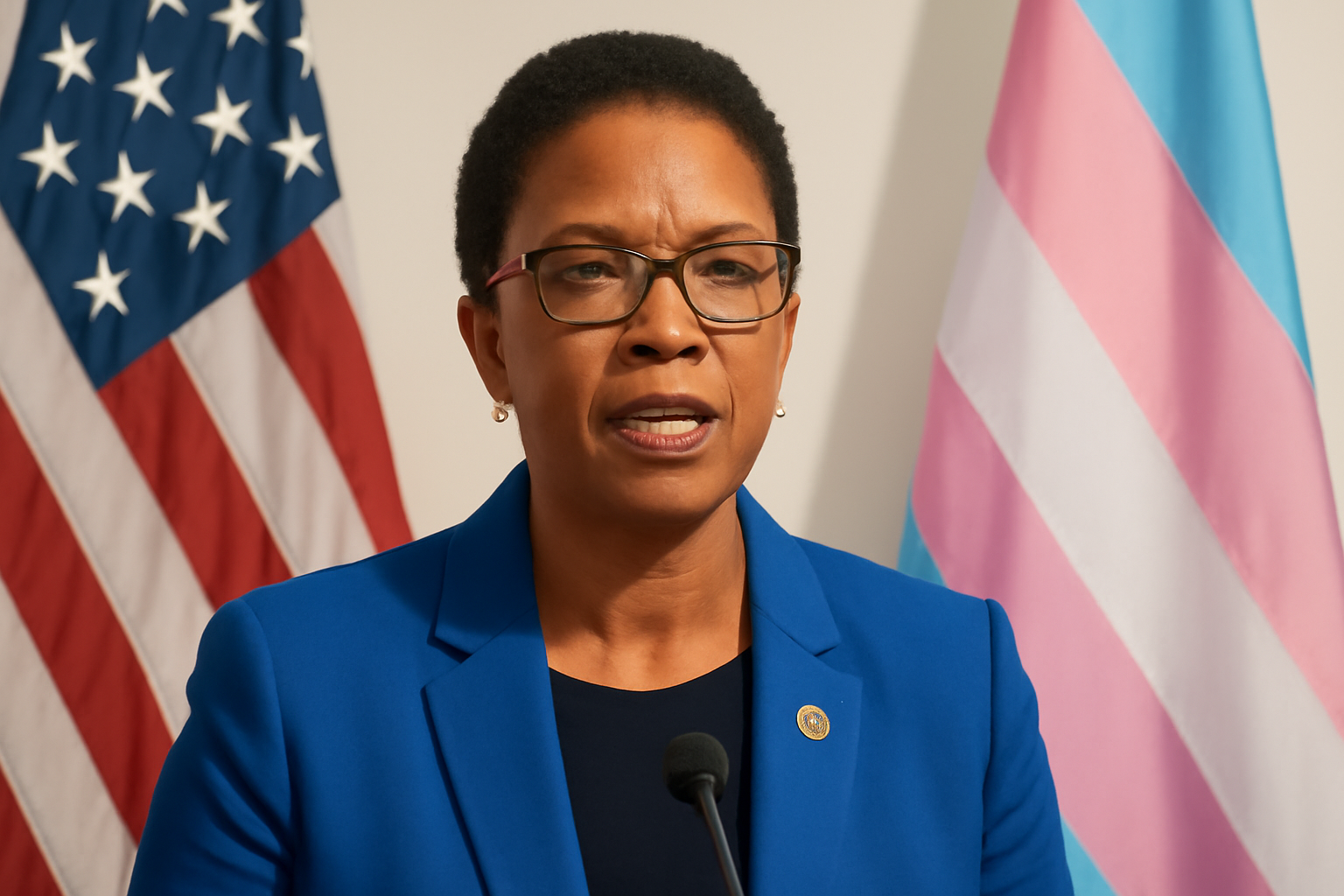
A House Democrat is taking a stand this week by introducing legislation aimed at preventing former President Donald Trump from reinstating a ban on transgender individuals serving in the military. This legislative move comes in response to Trump's previous efforts during his first term to prohibit transgender people from military service—a ban that faced significant legal challenges and was eventually repealed by the Biden administration upon taking office.
The Historical Context
During Trump's first term, he initiated a policy that barred transgender people from joining the military. This decision was met with a series of lawsuits in federal courts, where advocates for transgender rights argued against the ban's constitutionality and its impact on service members. In stark contrast, President Joe Biden overturned the ban, thereby affirming the right of transgender individuals to serve openly in the military.
The topic of transgender rights within the military framework continues to be a battleground for broader cultural and political debates. Trump's declaration to reinstate the ban has revived these discussions, as he reiterated his stance at a Turning Point USA event. "With a stroke of my pen on day one, we are going to stop the transgender lunacy," Trump declared. "I will sign executive orders to get transgender out of the military and out of our educational institutions."
The Legislative Push
In response to these developments, Representative Sara Jacobs from California has stepped forward with a legislative proposal designed to prevent the reinstatement of the transgender military ban. Jacobs, representing parts of San Diego, highlighted the impact such a ban would have on national security and military readiness. "The key is that Republicans are currently focusing on culture wars instead of actually focusing on our national security," Jacobs stated.
Jacobs emphasized the challenges the military faces in terms of recruitment and retention, questioning the logic behind discharging approximately 15,000 trained service members. "In a recruitment- and retention-challenging environment, it makes no sense to dismiss service members we've significantly invested in," she added.
Despite the determination behind this bill, Jacobs acknowledged the political reality: with Republicans controlling the House, the chances of her bill reaching a vote are slim. However, she remains hopeful that some Republican colleagues, who have expressed concern over military recruitment goals, might support her efforts.
The Public and Political Landscape
While the political landscape is fraught with tension over transgender rights, public sentiment appears to be shifting. A 2021 Gallup Poll indicated that 66% of Americans support allowing transgender individuals to serve openly in the military. This level of public support contrasts with the political actions taken by some lawmakers who advocate for restrictive policies on transgender rights, such as bans on gender-affirming care and participation in school sports.
Supporters of the transgender military ban argue from a perspective focused on traditional values and military cohesion, whereas opponents emphasize inclusivity and the benefits of a diverse military force. The debate reflects broader societal divisions over LGBTQ+ rights and the role of government in individual freedoms.
Looking Ahead
The introduction of the bill by Rep. Jacobs represents a pivotal moment in the ongoing struggle for transgender rights within the military. It signifies a broader effort to address what many see as an unjust policy that undermines military effectiveness and marginalizes a capable segment of the military population.
As the political battle unfolds, the outcome will depend not only on legislative efforts but also on public advocacy and the evolving discourse on transgender rights. The push to block the ban is emblematic of a larger movement advocating for equality and inclusion, aiming to ensure that all individuals, regardless of gender identity, have the opportunity to serve their country.
For the LGBTQ+ community, the stakes are high, and the engagement in political advocacy and awareness remains crucial. As discussions continue, the narrative surrounding transgender rights in the military will undoubtedly shape future policies and societal attitudes.
Stay informed and engaged by subscribing to our newsletter for the latest updates on how politics impacts the LGBTQ+ community and more.
Related Posts
Triumphant Trans Woman Wins Legal Battle and Inspires Others to Stand Up for Their Rights
Breaking new ground: a landmark victory in transgender rights After battling in courtrooms and enduring endless challenges, Diana Portillo, a transgender woman, has secured a monumental victory in her decade-long fight against workplace discrimination. The result? Nearly $1 million awarded in a historic settlement. But this isn't just a win on paper—it represents a powerful precedent in combati [...]
Pride Month in Latin America: Protests and Demands for Equality
**Celebrating Pride and advocating LGBTQ+ rights in Latin America** Pride Month in Latin America was a lively mix where celebration met activism. Communities united, not just throwing a party but making a stand—demanding equality and pushing governments toward better protection and rights recognition. Throughout Latin America, pride events erupted in marches and cultural displays, each with a c [...]
Transgender Erasure Actions Implemented by National Park Service
```html Trump administration's impact on national park service and transgender recognition The Trump administration made notable moves in undermining transgender representation, which included directing agencies like National Park Service not include "T" and "Q" when they refered “LGBTQ” in any official communication. This move seems part a broader plan by this administration aimed at reducin [...]